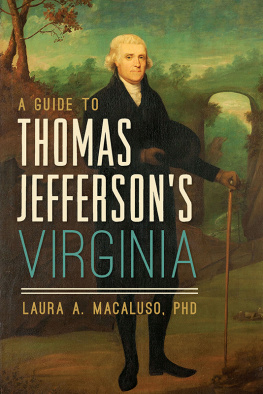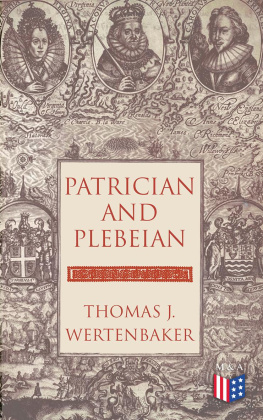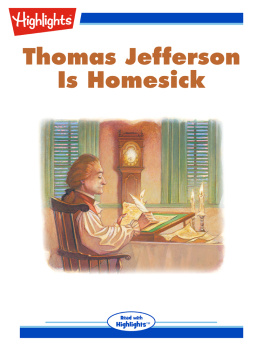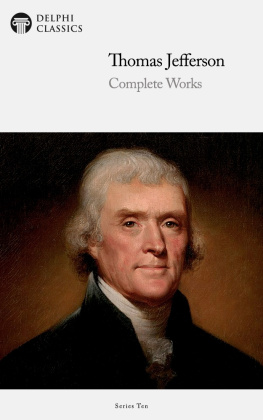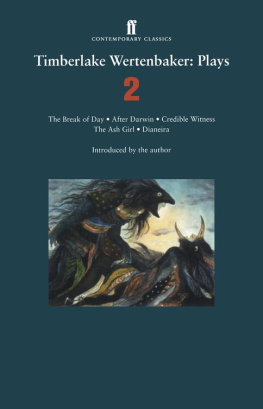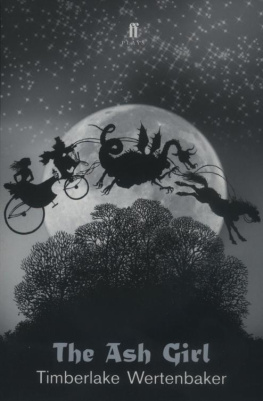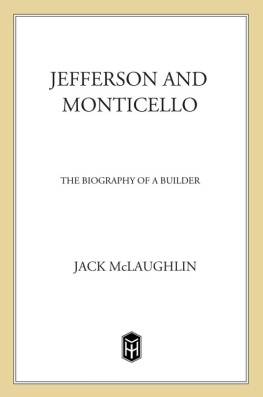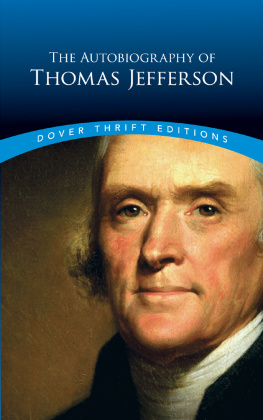Thomas Jefferson Wertenbaker - Virginia under the Stuarts 1607-1688
Here you can read online Thomas Jefferson Wertenbaker - Virginia under the Stuarts 1607-1688 full text of the book (entire story) in english for free. Download pdf and epub, get meaning, cover and reviews about this ebook. year: 2019, publisher: Good Press, genre: History. Description of the work, (preface) as well as reviews are available. Best literature library LitArk.com created for fans of good reading and offers a wide selection of genres:
Romance novel
Science fiction
Adventure
Detective
Science
History
Home and family
Prose
Art
Politics
Computer
Non-fiction
Religion
Business
Children
Humor
Choose a favorite category and find really read worthwhile books. Enjoy immersion in the world of imagination, feel the emotions of the characters or learn something new for yourself, make an fascinating discovery.
- Book:Virginia under the Stuarts 1607-1688
- Author:
- Publisher:Good Press
- Genre:
- Year:2019
- Rating:3 / 5
- Favourites:Add to favourites
- Your mark:
- 60
- 1
- 2
- 3
- 4
- 5
Virginia under the Stuarts 1607-1688: summary, description and annotation
We offer to read an annotation, description, summary or preface (depends on what the author of the book "Virginia under the Stuarts 1607-1688" wrote himself). If you haven't found the necessary information about the book — write in the comments, we will try to find it.
Virginia under the Stuarts 1607-1688 — read online for free the complete book (whole text) full work
Below is the text of the book, divided by pages. System saving the place of the last page read, allows you to conveniently read the book "Virginia under the Stuarts 1607-1688" online for free, without having to search again every time where you left off. Put a bookmark, and you can go to the page where you finished reading at any time.
Font size:
Interval:
Bookmark:
- This text has a Rule 6 copyright clearance. Research has indicated the copyright on this book was not renewed.
- The position of some illustrations has been changed to facilitate reading flow.
- Footnotes are located at the end of each chapter.
- In general, geographical references, spelling, hyphenation, and capitalization have been retained as in the original publication.
- Minor typographical errorsusually periods, commas and hyphenshave been corrected without note.
- Significant typographical errors have been corrected and are marked with dotted underlines. Place your mouse over the highlighted word and the original text will appear. A full list of these same corrections is also available in the section at the end of the book.
for Promoting Useful Knowledge
in
Virginia
THOMAS J. WERTENBAKER
Edwards Professor Emeritus of American History
Princeton University
THE AMERICAN PHILOSOPHICAL SOCIETY
INDEPENDENCE SQUARE
PHILADELPHIA
1958
Library of Congress Catalog
Card Number: 58-9093
PRINTED IN THE UNITED STATES OF AMERICA
BY J. H. FURST COMPANY, BALTIMORE, MARYLAND
April 1, 1957.
[Pg vii]
| PAGE | |
| I. | The Cornerstone of Liberty |
| II. | Self-government |
| III. | We Prefer Another Governor |
| IV. | Royalty Overthrown |
| V. | A Bacon! A Bacon! |
| VI. | Reconstruction and Despotism |
| VII. | The Glorious Revolution |
| VIII. | The Virginia Hitler |
| IX. | The Virginia House of Lords |
| X. | Spotswood |
| XI. | Peace and Prosperity |
| XII. | At StakeLiberty and a Continent |
| XIII. | The Widening Rift |
| XIV. | Independence |
| Essay on Sources | |
| Index |
[Pg ix]
| Thomas Jefferson. Portrait by Thomas Sully in the Hall of the American Philosophical Society | |
| The Old Capitol at Williamsburg, showing the north elevation which is a duplicate of the historic Virginia Capitol originally completed in 1705. Courtesy of Colonial Williamsburg, Inc. | facing page |
| The House of Burgesses in the Old Capitol at Williamsburg. Courtesy of Colonial Williamsburg, Inc. | |
| Governor Dinwiddie. Portrait in the National Portrait Gallery of London | |
| The General Court in the Old Capitol at Williamsburg. Courtesy of Colonial Williamsburg, Inc. | |
| Lord Dunmore. From the copy in the possession of the Virginia Historical Society of the original portrait by Sir Joshua Reynolds | |
| The Governor's Palace, Williamsburg. Courtesy of Colonial Williamsburg, Inc. |
[Pg 1]
THE CORNERSTONE OF LIBERTY
Font size:
Interval:
Bookmark:
Similar books «Virginia under the Stuarts 1607-1688»
Look at similar books to Virginia under the Stuarts 1607-1688. We have selected literature similar in name and meaning in the hope of providing readers with more options to find new, interesting, not yet read works.
Discussion, reviews of the book Virginia under the Stuarts 1607-1688 and just readers' own opinions. Leave your comments, write what you think about the work, its meaning or the main characters. Specify what exactly you liked and what you didn't like, and why you think so.


